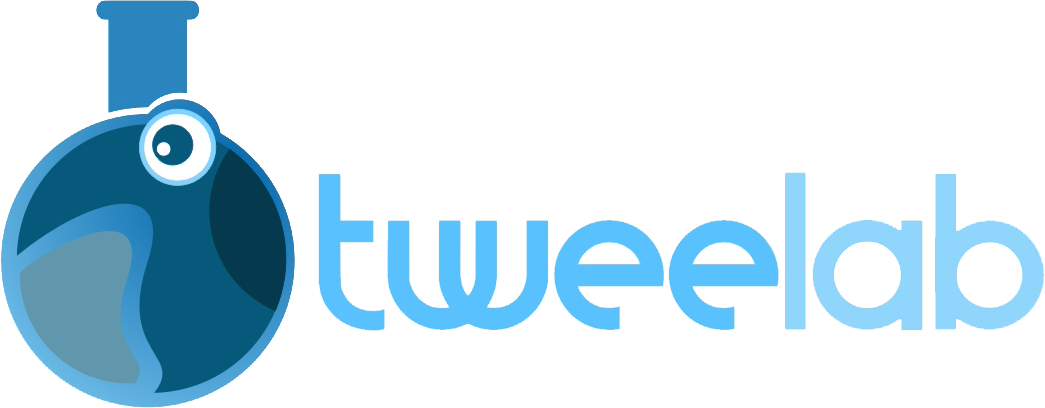One common objection to the idea of blogging brilliance is the belief that success in online writing simply requires a flair for creativity and an ability to captivate readers. However, this article argues that achieving online success as a blogger demands a comprehensive set of skills.
This article aims to provide aspiring bloggers with a roadmap to mastering ten crucial skills essential for online success. These skills include:
- Compelling and engaging content writing
- SEO understanding
- Strong editing and proofreading abilities
- Attention-grabbing headline creation
- Social media promotion mastery
- Visual content utilization
- Time management and organization development
- Networking with other bloggers
- Data analysis for improvement
By developing these skills, bloggers can increase their chances of achieving online success.
Key Takeaways
- Design and Visual Presentation: Use colors strategically, incorporate complementary typography, utilize negative space, and implement visual hierarchy for effective and aesthetically pleasing design.
- Time Management and Organization: Utilize task prioritization techniques, create a detailed schedule, minimize distractions, implement effective digital tools, and prioritize tasks and manage distractions efficiently.
- Networking and Collaboration: Engage in collaborative partnerships, join forces with like-minded individuals or brands, seek potential collaborators through social media or blogger communities, expand reach and build connections.
- Data Analysis and Utilization: Analyze data and analytics, use data visualization techniques, interpret website analytics, optimize online presence based on informed decisions from data analysis.
Writing Compelling and Engaging Content

The ability to write compelling and engaging content is essential for achieving online success in the realm of blogging. Incorporating storytelling techniques and using persuasive language techniques are two crucial skills that can elevate the quality of blog posts.
Storytelling allows bloggers to connect with their audience on a deeper level by creating narratives that resonate with readers’ emotions and experiences. By incorporating elements such as character development, plot structure, and vivid descriptions, bloggers can captivate their audience and make their content more memorable.
Additionally, using persuasive language techniques can help bloggers influence and persuade their readers effectively. Techniques like rhetorical questions, emotional appeals, and strong call-to-actions can inspire readers to take action or change their perspective.
Mastering these skills will enable bloggers to create captivating content that resonates with their target audience, ultimately leading to greater online success.
Understanding SEO and Keyword Research

Understanding SEO and keyword research involves analyzing search engine algorithms to determine the most effective keywords for optimizing online content. This process is crucial for improving website visibility and driving organic traffic.
To master SEO optimization and keyword research, consider the following:
- Keyword analysis: Conduct thorough research to identify relevant keywords that have high search volume and low competition.
- Competitor analysis: Analyze competitors’ websites to uncover their successful strategies and target keywords.
- On-page optimization: Optimize webpage elements, such as title tags, meta descriptions, headers, and content, using targeted keywords.
- Tracking and monitoring: Regularly track rankings and monitor website analytics to identify areas for improvement.
By implementing these techniques, you can enhance your website’s visibility on search engines, attract more qualified traffic, and ultimately improve your online success.
Remember that SEO optimization requires continuous effort and adaptation to stay ahead in the ever-changing digital landscape.
Developing Strong Editing and Proofreading Skills

Developing strong editing and proofreading skills requires attention to detail, a thorough understanding of grammar and syntax rules, and the ability to meticulously review written content for errors or inconsistencies.
Improving grammar proficiency is crucial in enhancing writing style and ensuring clear communication with readers. Effective editing involves checking for spelling mistakes, punctuation errors, and grammatical inaccuracies. It also includes examining sentence structure, clarity of expression, logical flow, and coherence within the text.
By honing these skills, writers can refine their work to ensure it is polished, professional, and error-free. Attention to detail is essential in identifying potential issues that may hinder comprehension or distract readers from the intended message.
Therefore, developing strong editing and proofreading skills plays a vital role in producing high-quality written content that engages readers and showcases the writer’s expertise effectively.
Creating Attention-Grabbing Headlines and Titles

Creating attention-grabbing headlines and titles is an essential aspect of effective written communication, as they serve the purpose of capturing readers’ interest and enticing them to engage with the content. Headline psychology plays a significant role in understanding what makes a title attention-grabbing. By employing various techniques, writers can craft catchy blog titles that resonate with their audience and evoke an emotional response.
To achieve this goal, consider the following tips and techniques:
- Utilize powerful words: Incorporate adjectives or verbs that are emotive or descriptive.
- Pose thought-provoking questions: Engage readers by stimulating their curiosity and encouraging them to seek answers within the content.
In addition, employ these strategies:
- Use numbers: Include specific figures to convey credibility and provide structure.
- Create a sense of urgency: Employ time-sensitive language to prompt immediate action.
Mastering Social Media Promotion and Marketing

To effectively promote and market on social media platforms, it is essential to strategically utilize various techniques and strategies that optimize visibility, engagement, and reach.
One effective strategy is forming influencer partnerships. Influencers are individuals with a large following who have the power to influence their audience’s purchasing decisions. By collaborating with influencers in your niche, you can leverage their credibility and reach to promote your products or services. This can greatly increase brand exposure and generate higher engagement rates.
Another important technique is cross-platform promotion. By promoting your content across multiple social media platforms, you can expand your audience reach and maximize visibility. This allows you to connect with different demographics and target markets, increasing the chances of attracting new customers or clients.
Ultimately, mastering these strategies will help you create a strong online presence and drive success in your social media marketing endeavors.
Building and Engaging with an Audience

Building and engaging with an audience requires implementing effective strategies that foster meaningful connections and encourage active participation from followers. Community building is a crucial aspect of audience engagement, as it creates a sense of belonging and encourages individuals to actively participate in discussions and activities.
To achieve this, communication strategies play a vital role. Effective communication involves clear and concise messaging, using appropriate channels to reach the target audience, and actively listening to their feedback. Additionally, it is important to create content that resonates with the audience’s interests and values, as this helps in building trust and credibility.
Engaging with the audience through interactive elements such as polls or Q&A sessions can also enhance community building efforts by encouraging followers to contribute their thoughts and opinions.
Ultimately, successful community building relies on consistent effort, strategic planning, and a genuine commitment to fostering meaningful connections with your audience.
Utilizing Visual Content and Design Skills

Utilizing visual content and design skills can enhance audience engagement by creating visually appealing and aesthetically pleasing elements that capture the attention of viewers. Visual storytelling is an effective tool for conveying information, evoking emotions, and establishing a connection with the audience.
To achieve this, there are several graphic design tips that can be employed. Firstly, understanding the target audience is essential in designing visuals that resonate with them.
Secondly, using colors strategically can evoke specific emotions and create a cohesive visual experience. Additionally, incorporating typography that complements the overall design enhances readability and communicates key messages effectively.
Furthermore, utilizing negative space can create balance and draw attention to important elements within the visual composition. Finally, incorporating visual hierarchy ensures that important information stands out while maintaining a harmonious aesthetic appeal.
Developing Time Management and Organization Skills

Developing effective time management and organization skills is essential for bloggers to stay focused, meet deadlines, and maintain a structured workflow. To enhance productivity and achieve blogging brilliance, bloggers should prioritize tasks effectively and manage distractions efficiently.
- Utilize task prioritization techniques: Use methods like the Eisenhower Matrix or Pomodoro Technique to identify and prioritize tasks based on urgency and importance.
- Create a detailed schedule: Plan your day by setting specific time slots for different blogging activities such as research, writing, editing, and promotion.
- Minimize distractions: Turn off notifications, block distracting websites or apps during designated work hours, and create a dedicated workspace that minimizes interruptions.
- Implement effective digital tools: Utilize project management software or apps to track progress, set reminders, collaborate with team members if applicable.
Networking and Collaborating with Other Bloggers

In order to thrive in the competitive world of blogging, it is essential for bloggers to engage in collaborative partnerships and employ effective networking strategies. Developing time management and organization skills, as discussed in the previous subtopic, lays a solid foundation for success. However, expanding one’s reach and building connections with other bloggers can exponentially enhance online visibility and credibility.
Collaborative partnerships provide opportunities for bloggers to share knowledge, resources, and audiences. By joining forces with like-minded individuals or brands, bloggers can amplify their content’s impact and attract a wider audience. Networking strategies play a crucial role in establishing these partnerships as they involve actively seeking out potential collaborators through social media platforms, industry conferences, or specialized blogger communities.
Analyzing and Utilizing Data and Analytics for Improvement

Analyzing and utilizing data and analytics allows bloggers to gain valuable insights into their audience, content performance, and overall blog growth. By harnessing the power of data visualization techniques and interpreting website analytics, bloggers can make informed decisions to optimize their online presence. Data visualization techniques help to present complex information in a visually appealing manner, making it easier for bloggers to understand patterns and trends. Interpreting website analytics provides bloggers with detailed information about user behavior, such as page views, bounce rates, and click-through rates. This knowledge enables them to identify successful strategies and areas for improvement. To illustrate the importance of data analysis in blogging, consider the following table that showcases key metrics bloggers should track:
| Metric | Description | Importance |
|---|---|---|
| Page Views | Number of times a page is viewed | Indicates popularity |
| Bounce Rate | Percentage of visitors who leave after viewing only one page | Measures engagement |
| Conversion Rate | Percentage of visitors who complete a desired action (e.g., sign up for newsletter) | Reflects effectiveness |
Frequently Asked Questions
How can I monetize my blog and make money from my content?
To monetize a blog and generate income from its content, various strategies can be employed. These may include methods such as affiliate marketing, sponsored posts, selling digital products or services, advertising revenue, and offering premium subscriptions or memberships.
What are some effective strategies for increasing blog traffic and attracting more readers?
To attract more readers and increase blog traffic, effective strategies include utilizing guest posting to reach new audiences and leveraging social media promotion to engage with existing followers. These tactics can enhance visibility and generate organic traffic for your blog.
How do I effectively engage with my audience and build a loyal community of followers?
Effective communication is key to engaging with an audience and building a loyal community of followers. By establishing trust through transparent and consistent communication, individuals are more likely to feel connected and invested in the online community.
What are some common blogging mistakes to avoid for online success?
Common blogging mistakes, such as neglecting SEO optimization, can hinder online success. By optimizing content for search engines, bloggers increase their visibility and attract more readers. Avoiding these errors is crucial for achieving desired results in the digital landscape.
How can I stay motivated and consistent in my blogging efforts over the long term?
To stay motivated and consistent in blogging over the long term, individuals must develop effective strategies for overcoming challenges. This includes setting clear goals, seeking inspiration from successful bloggers, and implementing a structured routine to maintain productivity.

